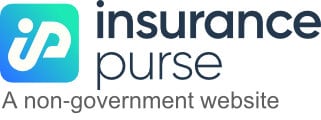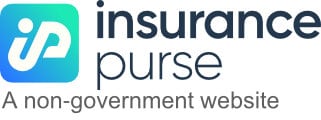Auto insurance can be a significant expense, but it doesn’t have to break the bank. With a few smart strategies, you can lower your auto insurance premiums without sacrificing the coverage you need. In this article, we’ll explore various tips and tricks to help you save money on auto insurance.
Understand Your Coverage Needs
The first step to lower your auto insurance premiums is understanding what coverage you actually need. Auto insurance typically includes several types of coverage, such as liability, collision, comprehensive, and uninsured motorist protection. Assess your driving habits and financial situation to determine the appropriate level of coverage.
For instance, if you have an older car that isn’t worth much, you might consider dropping collision coverage, which covers damage to your car in the event of an accident. Transitioning to a higher deductible can also reduce your premiums. However, make sure you have enough savings to cover the deductible if an accident occurs.
Shop Around for the Best Rates
One of the most effective ways to lower your auto insurance premiums is to shop around and compare rates from different insurers. Insurance companies use various factors to determine premiums, and rates can vary significantly. Get quotes from at least three different providers to ensure you’re getting the best deal.
Many online comparison tools make this process quick and easy. Keep in mind that the cheapest policy isn’t always the best option. Look for a balance between cost and coverage to ensure you’re adequately protected.
Take Advantage of Discounts
Insurance companies offer a variety of discounts that can help you lower your auto insurance premiums. Common discounts include:
- Good Driver Discount: If you have a clean driving record with no accidents or violations, you could qualify for a good driver discount.
- Multi-Policy Discount: Bundling your auto insurance with other policies, such as homeowners or renters insurance, can lead to significant savings.
- Safe Driver Discount: Completing a defensive driving course can demonstrate your commitment to safe driving and earn you a discount.
- Low Mileage Discount: If you don’t drive a lot, you may qualify for a low mileage discount.
Ask your insurance provider about all the discounts they offer and make sure you’re taking advantage of any that apply to you.
Improve Your Driving Record
Your driving record is one of the most critical factors in determining your auto insurance premiums. Avoiding accidents and traffic violations can help you maintain a clean record and lower your rates. If you have past violations, consider taking a defensive driving course to improve your record.
Over time, a clean driving record will demonstrate to insurers that you’re a low-risk driver, which can lead to lower premiums. Additionally, some insurance companies offer accident forgiveness programs that prevent your rates from increasing after your first accident.
Increase Your Deductible
Raising your deductible is another way to lower your auto insurance premiums. The deductible is the amount you pay out of pocket before your insurance kicks in. By opting for a higher deductible, you can reduce your premium costs. However, it’s essential to ensure you can afford the higher deductible in the event of an accident.
For example, if you currently have a $500 deductible and increase it to $1,000, you could see a significant reduction in your premiums. Just be sure to have the additional funds set aside in case you need to file a claim.
Maintain Good Credit
Believe it or not, your credit score can impact your auto insurance premiums. Insurers often use credit-based insurance scores to assess risk and determine rates. Maintaining good credit by paying bills on time, keeping credit card balances low, and avoiding unnecessary debt can help you secure lower premiums.
Regularly checking your credit report and addressing any errors can also ensure your credit score accurately reflects your financial responsibility. A higher credit score signals to insurers that you’re a lower-risk policyholder, which can result in better rates.
Consider Usage-Based Insurance
Usage-based insurance (UBI) is an innovative way to potentially lower your auto insurance premiums. With UBI, your insurance rates are based on your actual driving habits. Insurers use telematics devices or smartphone apps to monitor your driving behavior, including speed, mileage, and braking patterns.
If you’re a safe and infrequent driver, UBI could offer significant savings. It provides a more personalized insurance experience, rewarding you for responsible driving. However, if you drive frequently or have risky driving habits, UBI may not be the best option.
Reassess Your Coverage Regularly
Life changes, and so do your insurance needs. Regularly reassess your coverage to ensure it still meets your requirements and budget. For instance, if you move to a new area with lower crime rates or start working from home and driving less, you might be eligible for lower premiums.
Reviewing your policy annually or whenever you experience significant life changes can help you identify opportunities to save. Stay proactive about your insurance to ensure you’re always getting the best value for your money.
Final Thoughts
Lowering your auto insurance premiums doesn’t have to be complicated. By understanding your coverage needs, shopping around, taking advantage of discounts, and maintaining good driving habits, you can keep your premiums manageable without sacrificing protection. Remember, small changes can add up to significant savings over time.
Embrace these strategies, and you’ll be well on your way to lower your auto insurance premiums and keeping more money in your pocket.














